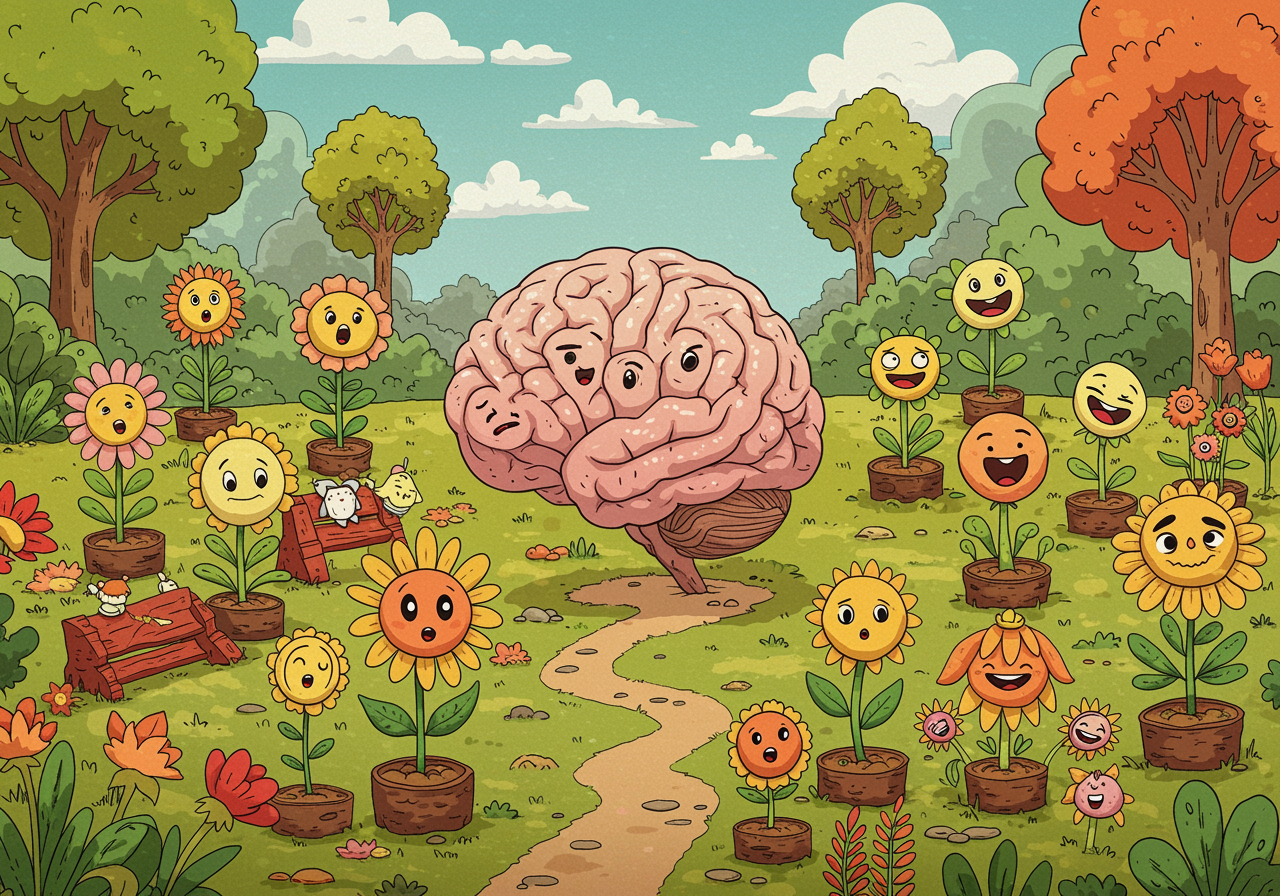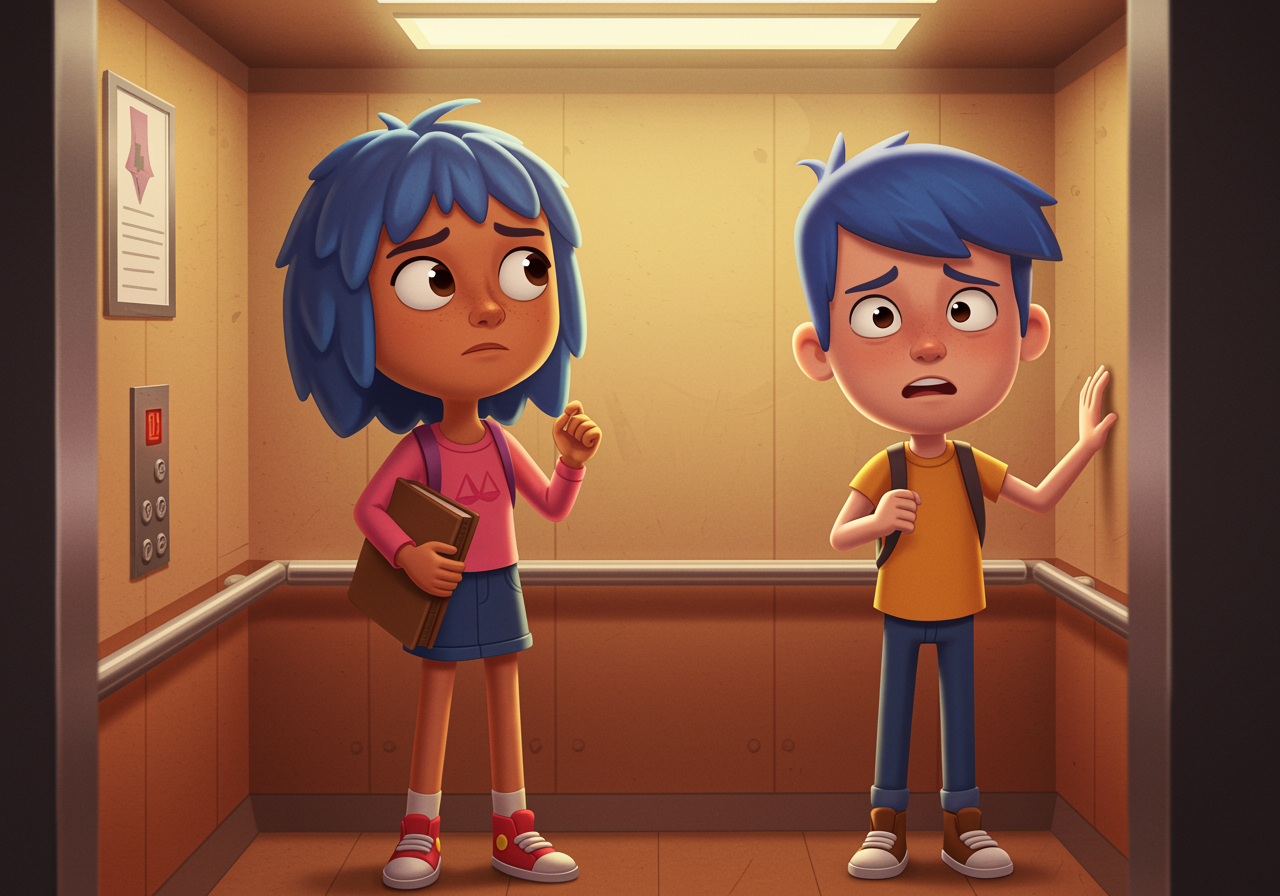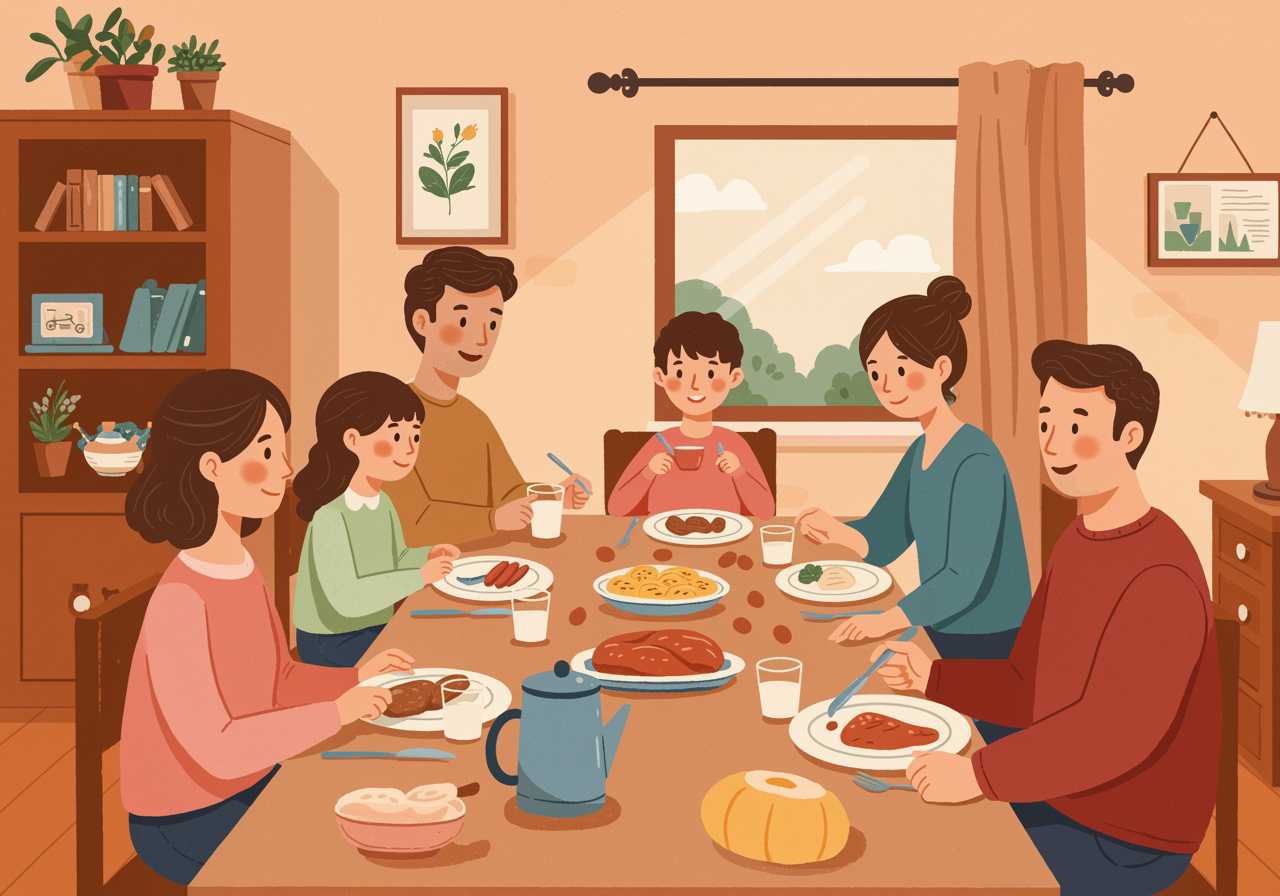Your Childhood Brain: The Amazing Foundation That Built You
Discover how your early years created the unique way you see the world today
Ever wonder why you react to things the way you do, or why some habits feel so natural while others are hard to break?
Overview
Think of your brain like a garden that's been growing since you were born. Every experience, conversation, and moment from your childhood helped plant seeds and create pathways that still influence how you think and feel today. Understanding this amazing process isn't about blame or guilt – it's about discovering the incredible story of how you became uniquely you. When families explore this together, it creates deeper understanding and stronger connections between parents and teens.

Understand in 30 Seconds
Get up to speed quickly
- Your Brain is Like a Highway System: Childhood experiences create 'neural pathways' – like roads in your brain that get stronger the more they're used. The paths you traveled most as a kid became your brain's favorite routes as an adult.
- Early Experiences = Life Templates: How you learned to handle stress, show love, and solve problems as a child becomes your brain's default setting. These patterns feel 'normal' because they're what your brain practiced first.
- Emotions Have Memory Too: Your brain remembers not just what happened, but how things felt. If certain situations felt safe or scary in childhood, your adult brain might react the same way automatically.
- The Good News: Brains Can Change: Even though childhood creates strong patterns, your brain stays flexible throughout life. Understanding your patterns is the first step to creating new, healthier ones.
Real Life Scenario
Situations you can relate to
Imagine two friends, Maya and Sam, both get stuck in an elevator. Maya stays calm and starts problem-solving, while Sam feels panicked and overwhelmed. Why the difference? Maya grew up in a family that approached challenges with curiosity and teamwork – her brain learned that unexpected situations can be handled calmly. Sam's family often stressed about problems, so his brain learned to react with worry first. Neither response is wrong – they're just different patterns their brains learned early on. Have you ever noticed how your family handles stress or celebrates success? Those patterns probably feel 'normal' to you because your brain has been practicing them for years!

Role Play
Spark a conversation with “what if” scenarios
What if you could observe your family from the outside, like a friendly scientist?
- Role play: Take turns describing your family's 'traditions' – not just holidays, but daily patterns like how you greet each other, handle disagreements, or celebrate small wins. Notice what feels automatic or 'just how we do things.'
What if you could meet your child-self and explain how their experiences are shaping their future?
- Role play: Parents and teens each share a childhood memory that still influences them today – maybe why they love certain foods, feel nervous in certain situations, or have particular strengths.
What if you could design the 'perfect' childhood to create specific adult traits?
- Role play: Together, imagine what childhood experiences might create an adult who's confident, empathetic, and resilient. Then discuss how real families can nurture these qualities, even when life isn't perfect.
FAQs
Frequently asked questions people want to know
Does this mean bad childhood experiences doom someone to problems as an adult?
Absolutely not! While childhood experiences are influential, they're not destiny. Understanding patterns gives us power to change them, and the brain remains capable of forming new pathways throughout life.
Is it normal for teens to question or reject their childhood patterns?
Yes! Adolescence is when the brain naturally starts evaluating learned patterns and forming independent identity. This questioning is actually a healthy part of development.
How can parents avoid creating 'negative' patterns without being perfect?
The goal isn't perfection – it's awareness and repair. When parents acknowledge mistakes, show how to handle stress healthily, and maintain loving connections, they're teaching resilience and emotional intelligence.
Examples in the Wild
See how this works day to day
- Research shows that children who experience consistent bedtime routines tend to have better emotional regulation as adults, demonstrating how early structure supports lifelong self-management skills. (American Academy of Pediatrics Sleep Research)
- Studies of identical twins raised in different families show that while genetics matter, childhood environment significantly shapes personality traits like optimism, social skills, and stress responses. (Harvard Study of Adult Development)
- Neuroscientist research reveals that children who learn multiple languages before age 7 maintain enhanced cognitive flexibility and problem-solving abilities throughout life. (MIT Brain and Cognitive Sciences Department)
- Athletes often trace their mental toughness to childhood coaches or parents who taught them to view challenges as opportunities rather than threats, showing how early messaging shapes lifelong mindset. (Sports Psychology Research Journal)
In Summary
What you should know before you start
- Childhood experiences create neural pathways that influence adult thinking and emotional patterns
- Early family dynamics teach us how to handle relationships, stress, and problem-solving
- Understanding these patterns isn't about blame – it's about awareness and positive change
- The brain remains flexible throughout life, allowing us to develop new, healthier patterns
Pro-tip for Parents
You got this!
If your teen seems to be rejecting family values or questioning everything, remember this is actually their brain doing important developmental work. Instead of taking it personally, use it as an opportunity to explore together why certain patterns exist and which ones serve them well. Ask questions like 'What family traits do you want to keep?' and 'What would you do differently?' This validates their growing independence while maintaining connection.

Keep an Eye Out For
Find these examples in everyday life
- Notice how your family handles unexpected changes or stress – these moments reveal your patterns in action
- Pay attention to family stories that get told repeatedly – they often reveal values and patterns being passed down
- Watch how different families in your community approach celebration, conflict, or decision-making
Explore Beyond
Look up these related research topics
- How do different cultures shape childhood experiences and adult perspectives?
- What role does genetics vs. environment play in personality development?
- How can understanding trauma help families build resilience together?